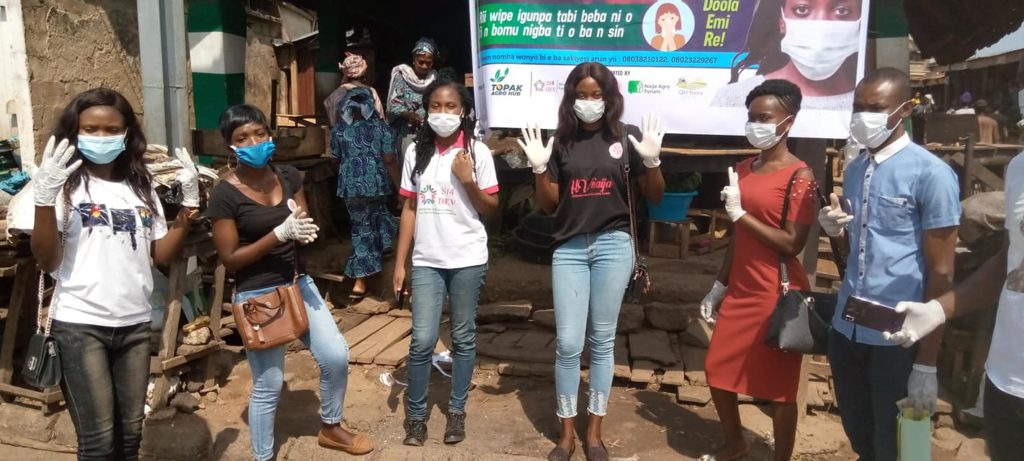The effect of the rapidly increasing COVID-19 outbreak in Nigeria can be seen in every aspect of our society. This is because social distancing which is agreed by all as the best preventive measure destabilizes regular routines across all sectors, thus negatively impacting health and economic outcomes for the country, among other impacts.
The current shut down of all activities in most states, with people compelled to stay home to limit virus spread, comes with unintended consequences. Lack of basic services like water and electricity compounds lack of funds, food, soaps and or sanitizers in most low income homes.
Most urban poor and rural Nigerians live on daily wages, and an extended shutdown will lead to hunger and malnutrition among these low-income groups. High illiteracy and inadequate sensitization will also lead to an increase in sickness and deaths from COVID-19 as people disregard social distancing orders and continue to move around and spread the virus. If these are not mitigated, there will be crime and societal breakdown sooner than later. The question is who will provide the cushion and how?
Nigeria is already constrained in managing a crisis like the COVID-19 pandemic, with about 48% of the population living in extreme poverty. Nigeria ranks very poorly on indicators of malnutrition and hunger, access to health and education, employment, income, economic growth, and productivity. The country is also grappling with ongoing security challenges and the humanitarian crisis of internally displaced persons caused by Boko Haram attacks and communal clashes. The health system is also under-resourced, with only an estimated 500 respirators in the entire country.
The first incidence of coronavirus was announced 27th February 2020 in Lagos, Nigeria, and by late March there were still less than 50 cases which were limited just 5 out of 36 states. Unfortunately, in the time since then, inadequate infectious disease training and insufficient supply of protective equipment have led to several health workers testing positive for COVID-19 and having to self-isolate. In fact, the entire leadership at one of the best medical centers in Nigeria (University College Hospital Ibadan) was infected during a COVID-19 task force incident command team meeting.
Also, a presidential adviser who was infected on a trip to Europe spread the virus upon his return to over four state governors and other policy advisors. There are now almost 150 cases in over 13 states in the country including top politicians.
To limit the spread of the virus, the president of Nigeria on 29th March 2020 announced a total shut down of movements in the major economic centers of Nigeria, in addition to other state government orders closing schools, large gatherings, etc. The shutdown is for an initial period of 2 weeks, lasting into mid-April, but looking at the current number of cases, Nigeria is still in the low troughs of the epidemiological curve when compared to what was observed in other countries.
The federal government is right to go ahead with these prevention measures but with the IMF announcing a global recession, and the United Nations estimating doubled unemployment in Africa, the outbreak will be devastating to the Nigerian population if governments and philanthropists don’t provide some relief. But foreign donors are battling the pandemic in their own countries.
SI4DEV is calling on all our friends and supporters to join us in providing some humanitarian relief in our communities.
We hope we can receive your support towards empowering our partners and participants to remain community leaders and builders in these challenging times.
Bank: GTBank
Bank Name: Strategy and Innov for Dev Initiative
Account Number: 0366172770
